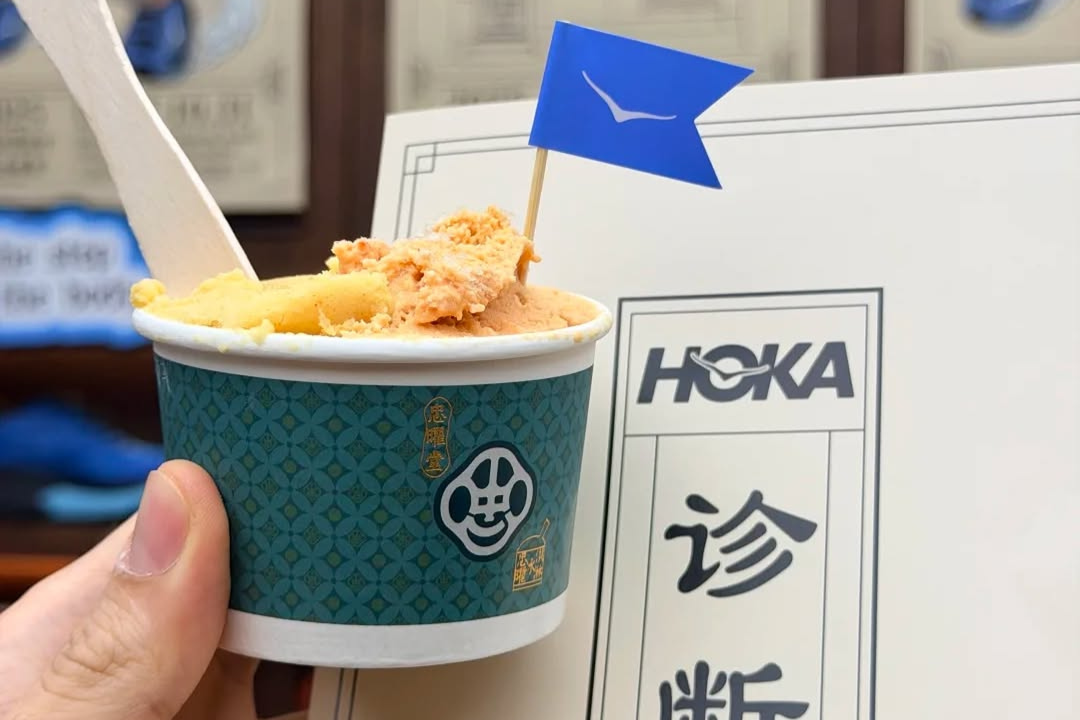Digital Existence is a series where we explore how technology and the internet impact everyday people’s lives in China and beyond. This month we’re exploring China’s most popular sports forum, Hupu, and its community culture.
In most parts of the world, sports fans rely on ESPN, Reddit Sports, the CNN or BBC sports pages, or Yahoo for the latest scores and game updates. But in China, sports commentary and news platform Hupu is the go-to place for many young sports fans, especially the male demographic.
According to Qianfan Analysys, 94% of Hupu users identify as male, and 67% are under the age of 29. Additionally, Hupu had the most active users among all Chinese sports apps as of November 2020.
The platform was established in 2004 and has become an all-around online sports forum covering most sports, including basketball, soccer, Formula 1, esports, and more.
Basketball and soccer are Hupu’s core pillars and the reason for its decades-long popularity. However, the forum has also become a community for straight males to discuss issues beyond sports, such as relationships, gossip, and lifestyle-themed topics.
Basketball Blog Turned Sports Forum
Many might not know that Hupu started as a basketball blog. A diehard fan of the Chicago Bulls, founder Cheng Hang, who was pursuing a Ph.D. in mechanics in Chicago at the time, created hoopCHINA to share NBA news with other Chinese basketball fans in the U.S.
In 2007, Cheng founded Hupu as most know it today, expanding its business scope to cover other types of sports, conduct gaming cooperation, operate sports gear ecommerce, and host offline events. It’s now China’s biggest sports forum, with more than 70 million registered users as of April 2020.
You might also like:
 How Basketball Became China’s Most Beloved SportAnd no, it’s not just because of Yao MingArticle Aug 28, 2019
How Basketball Became China’s Most Beloved SportAnd no, it’s not just because of Yao MingArticle Aug 28, 2019
Roy Li, a Shanghai-based software-as-a-service (SaaS) customer success manager, began to follow Hupu in 2015 just for NBA news. He remembers having to pass a test of 20 sports-related questions to sign up for an account. (New users are no longer required to pass a test; simply provide your ID info.)
“It appeals to me because there are a lot of professional fans on the site, and their comments are objective and neutral. Most posts are from real users instead of advertising or phishing,” says Li, who spends one or two hours on the forum every day for match results and comments on the NBA, soccer, and even stocks.
Yang Hao, a 26-year-old investment banking associate who scours the site for the latest society news, also speaks highly of Hupu’s timely updates, “The platform does a good job of collecting and updating its data.”
A Sense of Community
According to Sohu, most Hupu users are urbanites with similar needs and interests, such as sports, electronic devices, games, and sneakers. A shared sense of enjoyment contributes to the platform’s community culture.
Hupu users even have a nickname for themselves — JRs, an acronym for family members (家人们) in Chinese. This colloquial moniker is also encouraged by the platform.
According to an analysis report on the Hupu app, the mobile app’s placement of its community navigation tab — next to the home page — speaks of the significance of the community section.

A screenshot of Hupu’s community page
The app also offers community subgroups that zoom in on sports, film, TV, cars, and many other areas of interest. Arguably the most popular group, ‘Pedestrian Street,’ is where users discuss all kinds of life topics. In short, Hupu has created not only a sports forum but also a lifestyle community for its JRs.
“For me, Hupu is a rare place for pure fans slash nerds to gather in a less commercial atmosphere,” Li says.
He recalls when Kobe Bryant passed away, and fans, including himself, communicated and comforted one another on the site.
“I was so touched to see so many longtime fans of Kobe share stories and pictures of their sports gear collections.”
Fan Yuqi, a Beijing-based quantitative analyst, is another basketball fan who became a Hupu regular in 2014. Community sections, including Pedestrian Street, interest him, but he especially enjoys posts with quirky life observations such as, “If I throw a rock in the river today, I’d be the last human to see it before the apocalypse.” (An interesting philosophical musing, although we suppose its accuracy depends on how deep the river is and how clear the water is.)
Fan tells RADII that he thinks most Hupu users are sports enthusiasts, and that shared identity naturally bonds them together.
For Yang, Hupu is one of several apps he spends the most time on every day, and he identifies as a JR.
“I think Hupu users are rational and have values in line with mine,” he says. “People are genuine when sharing their experiences and opinions.”
A Hub for Straight Men
Hupu is known as a ‘hub for straight men,’ not only because of its primary audience but also due to its general atmosphere.
“Many male users on the site can be straightforward and funny, but also one-sided and extreme,” Fan says.
He adds that sometimes people get competitive and bicker about stupid things.
“Many relationship posts are about their experience simping or being cheated on,” Fan complains. “Those make me cringe.”
On the Chinese internet, the term ‘straight men’ (直男, zhi nan) is somewhat detached from its traditional definition — relating to gender and sexual orientation — and has become a slang term referring to a subset of misogynistic netizens. The term paints a picture of self-conceited male chauvinists who value video games and sports over their partners (if they are even in the dating pool) and are nonchalant towards women’s psychological needs.
Li echoes what Fan describes, saying that zhi nan (within the context of internet culture) tend to create extreme, exclusive, or even sexist content or comments on the site. However, he also points out that they contribute to Hupu’s “honest, straightforward, and frank” language.
The platform’s founder explained to Chinese tech media outlet 36Kr in 2020 that Hupu aims to provide a dedicated platform for men, as their voices are relatively weak on other traditional social media platforms such as Weibo and Douban.
“We chose the male market for the simple reason that we don’t know much about women. I don’t even understand the female relatives in my own family,” Cheng said in another interview. “But we know exactly what men like.”
Since 2016, Hupu has hosted an annual goddess competition where users vote for the most popular and prettiest female celebrity, who is crowned the ‘goddess.’ The past six champions include Disney’s Mulan Liu Yifei and retired Hong Kong actress Chingmy Yau.
Vlinkage did a compilation of HUPU’s Annual Goddess Contest of “Who’s the most popular goddess in HUPU? Which female celebs do these guys like the most?” fyi, just as predicted, #YoonA lost out to this year’s eventual champion GYY lol pic.twitter.com/XQZlD3zc0K
— Kellog (@kellog_yoona) July 18, 2020
“Maybe all straight men have a competitive streak in their bones. They like to compare and express their aesthetics and tastes,” said Shen Ruien, former head of Hupu’s community user growth, in a 2021 article. “You can think of Hupu as a barbecue stall or a college dorm where guys hang out after watching football.”
But Hupu users aren’t always about flexing their muscles; some also share their vulnerable sides, especially after being cheated on by their partners. As much as Fan dislikes the topic, it makes for one of Hupu’s most popular.
“Externally, the Hupu community is tough and aggressive, but internally, many share their cuckold experiences and express their weaknesses and anxieties,” wrote Liang Chenglin, a graduate student of cultural studies at Shanghai University, in a 2020 article. Liang also visits Hupu regularly and wrote a paper analyzing the masculinity amidst Hupu’s online community.
He added, “The former reflects traditional masculinity, while the latter explains the new changes in Chinese masculinity over the years.”
Speaking of masculinity, although petite male idols are popular in China, there is bad blood between Hupu and ‘little fresh meat’ pop stars.
In 2018, an online battle happened between Hupu JRs and fans of now-disgraced Chinese-Canadian pop idol Kris Wu. It started with a Hupu user mocking Wu’s singing voice. Wu’s primarily female fans quickly stormed to the site and argued with Hupu’s predominantly male users. What’s more, Wu himself and Hupu’s official account also weighed in on the confrontation.
***Correction: In his Weibo post Kris Wu says, “Hupu isn’t concerned with SPORTS, it’s concerned with me.” Corrected translation attached below. pic.twitter.com/ijOb9ax6NR
— Trending Weibo (@TrendingWeibo) July 25, 2018
Yang recalls another incident between Wu and Hupu: The platform updated its upvote sign in its entertainment section in response to Wu’s arrest (Kris Wu is officially canceled, if you didn’t know) to mock the idol’s musical talent. A feature was added so that upvoting a post on the platform caused prison bars to ‘lock up’ a ‘skr electric eel’ representing Wu.
“I enjoy the humor reflected on the app, as people are always making fun of things,” Yang says. “It’s fun being a Hupu JR.”
Cover photo designed by Haedi Yue


















